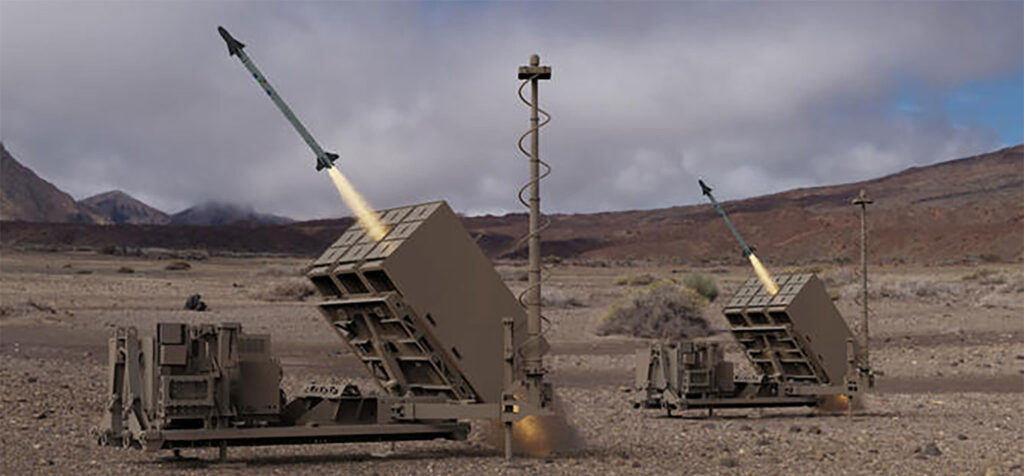The Enduring Shield missile defense system, produced by U.S. defense contractor Dynetics, a subsidiary of Leidos, has successfully passed early tests. LEIDOS
THE WATCH STAFF
Enduring Shield, the ground-based mobile multi-launch missile and drone defense system, is on track as the $237 million project cleared its latest tests. U.S. defense firm Leidos announced December 19, 2023, that Enduring Shield successfully completed the risk reduction flight demonstration. The next stages of development will include the initial shipment of launchers.
Enduring Shield utilized the Integrated Battle Command System (IBCS) interface to launch an AIM-9X missile interceptor during the demonstration, showcasing the capabilities of the missile defense system.
Enduring Shield will strengthen the nation’s multilayered homeland defense by filling the niche between small, mobile defense systems and high-altitude and far-ranging radar systems. The missile defense system is designed to counter cruise missiles and unmanned aircrafts and act as a link between tactical short-range air defense systems and strategic defense mechanisms, such as the Terminal High Altitude Area Defense and Patriot missile batteries.
Dynetics, a subsidiary of Leidos, won the Enduring Shield contract with the U.S. Department of Defense (DOD) in September 2021. The contract allowed Leidos to produce 16 fieldable launcher prototypes, 60 interceptors and related ammunition, according to a U.S Army news release.
The 2½-year contract was awarded by the U.S. Army Program Executive Office Missiles and Space for the Enduring Indirect Fires Protection Capability program, part of the DOD’s multilayered defense strategy, according to Real Clear Defense.
Enduring Shield is part of a larger effort to upgrade the U.S. missile defense system to better reflect the nation’s multilayered defense strategy. The Army Times reported that another system, the Lower Tier Air and Missile Defense Sensor (LTAMDS), has also tested well.
The LTAMDS radars detect and counter ballistic missiles, as well as other projectile threats. LTAMDS is set to replace the current Patriot radar system, which is four decades old. Raytheon, a U.S. aerospace and defense company, won the bid on the $384 million contract, allowing the company to build six LTAMDS radars. The radars are in the testing stage of development and on track to be fully operational by the end of 2024.

